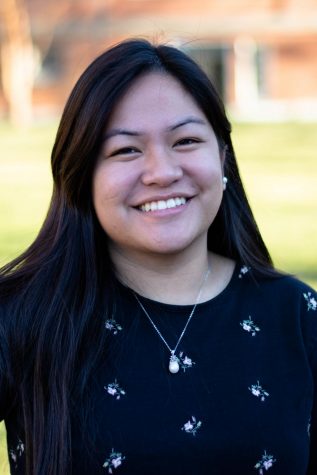Project addresses generational trauma
Researchers working with Native communities to create programs
RACHEL SUN | THE DAILY EVERGREEN
Intergenerational trauma, which includes issues like addiction and mental illness, can pass from one generation to another among Native American communities.
October 9, 2018
A three-person team consisting of two professors and a community member received a $350,000 award from a nonprofit foundation in hopes of furthering research on Native American reservations.
Sara Waters, a WSU Vancouver human development assistant professor, is working with Myra Parker, an assistant psychiatry and behavioral professor at the University of Washington, and Alvina Marris, a member of the Confederated Tribes of the Colville Reservation, on a project to address intergenerational trauma.
Waters said intergenerational trauma is when trauma issues like addiction or mental illness experienced by caregivers or parents are passed down in families.
“The kinds of things that we have going on can make it really hard for us to be there for people,” she said.
The three-year project includes work on childhood developmental issues that are worsened by those traumas, which tribes often experience at higher rates than average.
The team will be doing community-engaged research and will partner with underserved groups, Waters said.
“Rather than telling people what they need,” she said, “we’re actually coming in and asking communities what they need.”
The team submitted a written application to the Robert Wood Johnson Foundation last March and received the award Sept. 15, Waters said. She met her group members through an organization she is a part of and discussed ideas to develop an intervention for parents and children who suffered trauma.
“It wasn’t a program that got invented on a university campus and then just brought to the reservation,” she said. “It was actually an intervention that was developed by the people on the reservation.”
Waters said one of the things she has been working on is a parenting intervention program for caregivers with children under the age of 6. Parents would discuss issues with early childhood and their relationship with their children.
“We’re going to blend that with the tribal traditions and Native caregiving knowledge to make it [a] really culturally meaningful program,” she said.
Waters said half of the $350,000 award will go toward the research project, compensating participants for their time and the location they are going to have their discussions.
The other half will go toward bringing the team together since Parker is in Seattle and Marris is on the Colville Reservation.
“There’s not a lot of programs that are developed by the Native communities, for those Native communities especially around childhood and parenting,” Waters said.
The group hopes to make the program a model for how other tribes can do something similar in their communities, Waters said.
“They don’t have to have the same exact rituals or the same practices,” she said. “They have a model for how to take the science and merge it with Native traditions in ways to develop a program that’s really valuable and really theirs.”
When a child grows up in that type of environment, their brain develops differently, Waters said. That has long-term consequences and can become intergenerational trauma.
“In Native communities, you have families where they’ve been experiencing trauma historically for hundreds of years,” she said.
In the past, that trauma included Native children being taken away from their families to go to boarding schools where their culture was stripped away, Waters said.
“That has its effect,” she said. “That does damage to the next generation because those children who were raised in boarding schools become parents and they don’t have those good experiences when they were little kids to kind of draw on when they become parents.”
















